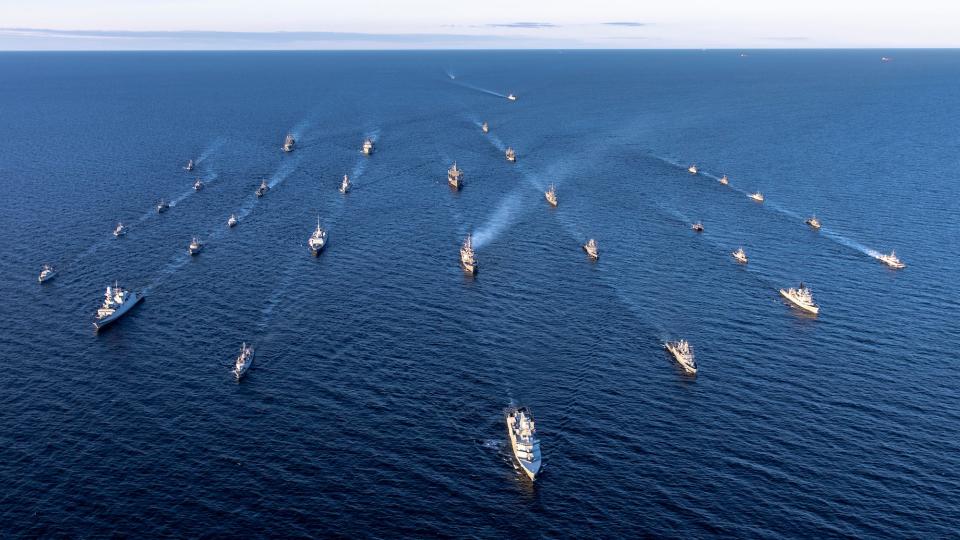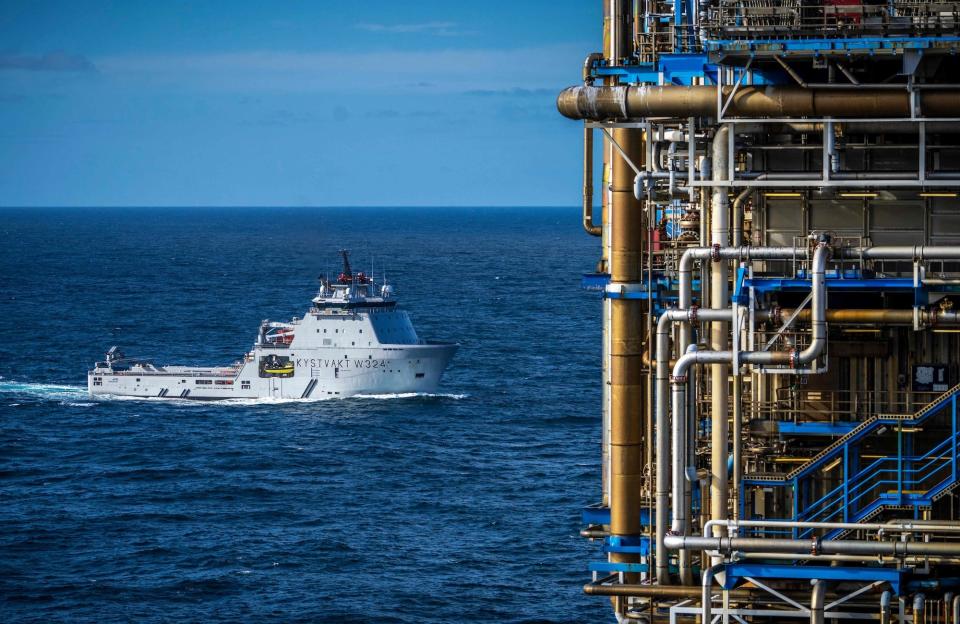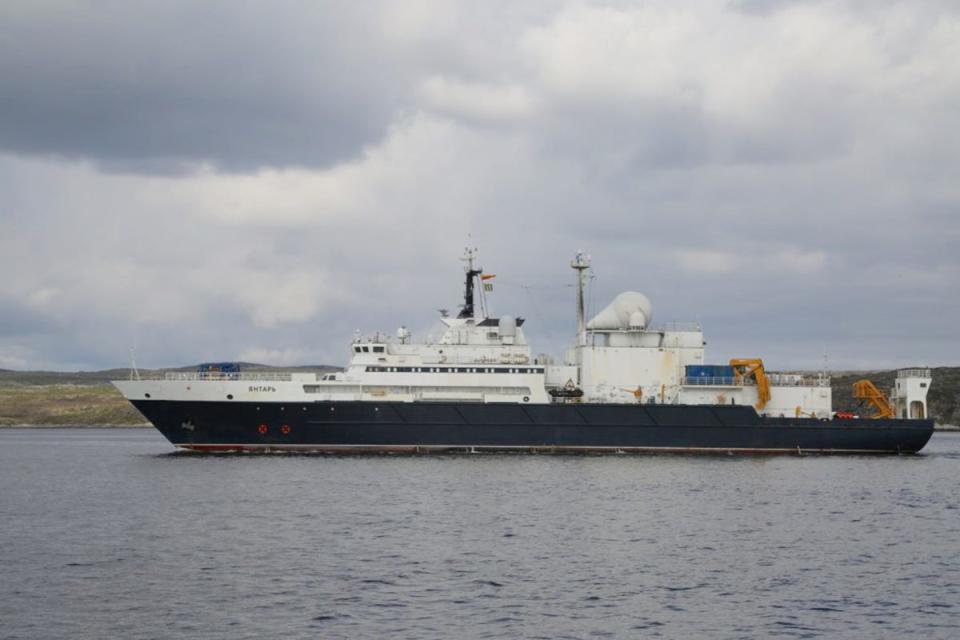NATO navies are worried about Russia using its unique weapons to pick a fight on territory nobody controls

Recent damage to undersea pipelines and cables in Europe has raised concern among NATO members.
They fear Russia could interfere with seabed infrastructure to put pressure on the alliance.
But legal and environmental difficulties complicate NATO's ability to secure that infrastructure.
Recent damage to cables and a pipeline off the coast of NATO's newest member has added to the alliance's concerns about its ability to defend infrastructure on the seafloor, where the laws of nature and of international relations limit how it can respond.
On October 8, a gas pipeline and two telecommunications cables running between Estonia and Finland were damaged. The incident is still being investigated, but there are indications that an anchor from a Chinese container ship may have been responsible, though it has yet to be determined if the damage was deliberate.
NATO responded by increasing aerial patrols and dispatching four mine-hunting ships to the region. "NATO will continue to adapt its maritime posture in the Baltic Sea and will take all necessary steps to keep Allies safe," a spokesperson for the alliance said.

The incident has brought renewed attention to the vulnerability of underwater infrastructure, but it was only the latest in a series of similar incidents around northern Europe.
In 2021, a 2.5-mile-long section of a data cable disappeared from the waters north of Norway. In February 2022, a Norwegian data cable was damaged, with investigators saying there were indications of human involvement. The highest-profile incident was the sabotage of the Nord Steam gas pipelines between Russia and Germany in September 2022.
The culprits in those incidents remain undetermined — in the case of the Nord Stream explosions, there is suspicion that Ukraine is to blame — but they have added to rising tensions between NATO and Russia, which the alliance has long viewed as willing and able to target pipelines and cables to pressure its rivals.
"There are heightened concerns that Russia may target undersea cables and other critical infrastructure in an effort to disrupt Western life, to gain leverage against those nations that are providing security to Ukraine," David Cattler, NATO's intelligence chief, said in May.
Allied responses

Underwater infrastructure is critical to modern life. Most internet traffic is conveyed through underwater fiber-optic cables, and energy pipelines now crisscross many seas. Yet their location means infrastructure is exposed to nature and hostile actors.
"There is a vulnerability around anything that sits upon the seabed, whether that's gas pipelines, whether that's data cables," Adm. Ben Key, the British Royal Navy's highest-ranking officer, said after the Nord Stream attacks.
The scale of that "economic infrastructure" meant there was an obligation for the Royal Navy and organizations like it "to have a means of monitoring and provide security around it," Key added.
NATO is working on being able to do that. The alliance created a number of initiatives this year to increase civilian-military cooperation and promote industry engagement in order "to boost the security of Allied underwater infrastructure" and better coordinate the maritime-surveillance capabilities of its members.

NATO's defense-innovation accelerator has made sensing and surveillance in underwater coastal zones one of the three pilot issues it wants to address, reflecting the importance of the problem and the technological challenges involved in responding to it.
The emphasis on defending underwater infrastructure is visible in the alliance's operations.
The annual Dynamic Messenger exercise includes a focus on protecting critical underwater infrastructure and involves information exchanges between alliance militaries and private-sector actors. The UK-led Joint Expeditionary Force, set up in 2014 and composed mostly of Nordic and Baltic states, is also focused on working with NATO to defend northern Europe.
"When you consider just how much energy and data now moves across the seabed around the world and the importance that has for international economies, organizations like the JEF that are thinking deeply about how we provide security in this sort of space, I think, is very important," Key said at an event in October.
A difficult job

Protecting underwater infrastructure is no simple task, however. It is easier in shallow waters or close to naval bases, as in the Baltic and Nordic seas, but detecting and preventing threatening activity in deep waters or far from shore, such as in the North Atlantic, is much harder.
The situation becomes more complicated because underwater infrastructure often passes through international waters, muddling the legal framework around its protection and making a response harder.
"When a data cable is traversing the Atlantic or Pacific, for the overwhelming majority of its journey, it's in territory that is owned by everybody," Key said at the October event. "So we, as the group of like-minded nations, have really got to think quite carefully now about how we protect our economic security."
On top of that, Russia has units dedicated to surveying and sabotaging such infrastructure and has developed specialized vessels to do so while masking their activities.

The Main Directorate for Deep-Sea Research, known as GUGI, is focused on underwater activities and operates submarines (including mini subs), surface vessels, and unmanned submersibles specialized for deep-sea operations, including disrupting underwater infrastructure.
GUGI vessels have been spotted near underwater infrastructure in recent years. The admiral in charge of NATO's submarine fleet warned in 2017 that Russian activity near undersea cables was the highest ever observed, and Cattler, NATO's intelligence chief, said in May that Russia was "actively mapping allied critical infrastructure."
Key said in October that the centrality of undersea infrastructure and the growing threats to it meant that the seafloor could now be another "domain" that NATO has to be prepared to operate in.
"You could say, well, everyone talks about space and cyberspace. I would add seabed warfare now very much into the mix of the new domains," Key said.
Constantine Atlamazoglou works on transatlantic and European security. He holds a master's degree in security studies and European affairs from the Fletcher School of Law and Diplomacy. You can contact him on LinkedIn and follow him on X/Twitter.
Read the original article on Business Insider


